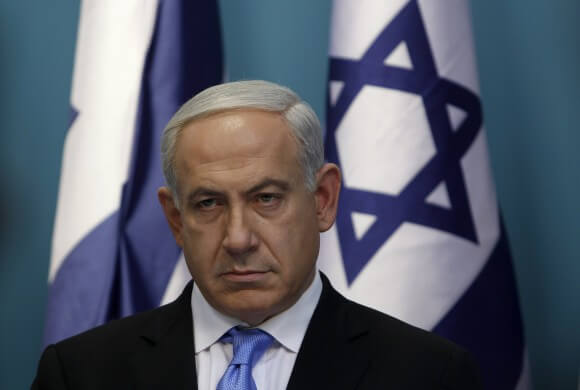Israeli Prime Minister Benjamin Netanyahu’s right wing coalition announced on Monday that it would be dispersing the country’s Parliament and holding early elections in April 2019, seven months before their scheduled date next November.
The move comes amidst increasing criticism of Netanyahu within his government over his handling of security decisions and an ongoing investigation for bribery and corruption.
Netanyahu’s coalition has been struggling to stay afloat ever since former Defense Minister Avigdor Lieberman resigned last month over his opposition to a ceasefire deal with Hamas in the Gaza Strip.
Lieberman’s departure cost Netanyahu’s coalition five seats in the Knesset, Israel’s parliament, leaving it with a slim majority.
In the days leading up to Monday, party leaders failed to agree on a key bill regulating drafting ultra-Orthodox Jews into the army, sparking the immediate call for elections.
Israeli media and political analysts have speculated that the real reason behind the sudden call for snap elections is that Netanyahu wants an election before Israel’s Attorney General Avichai Mandelblit announces whether he will indict the premier in three different corruption cases.
If he wins in April, Netanyahu will be able to claim the support of the people, and be better suited to combat potential charges against him.
Israeli media outlets reported on Wednesday that polls put Netanyahu’s Likud party as the frontrunners in April’s elections, despite polls saying that 52 percent of Israelis do not want to see Netanyahu carry on to another term.
The polls also predicted gains for both the left-wing opposition Meretz party and ultra right-wing Jewish Home party.
The centre-left Zionist Union, led by Avi Gabbay, and the centrist Yesh Atid party led by Yair Lapid are currently the largest opposition groupings.
Following Monday’s announcement, several party leaders including Gabbay, Lapid, and Lieberman made statements predicting their respective wins in the upcoming elections, according to the Jerusalem Post.
Ayman Odeh, chairman of the Arab Joint List reportedly said Palestinian citizens of Israel “will come out to vote in droves.”
Meanwhile, Netanyahu has been stepping up efforts to galvanize his nationalist right-wing base, with Haaretz reporting that the premier spoke with settler leaders during a meeting in Jerusalem telling them that a left-wing victory “will be a clear danger to the settlement enterprise.”



“Ayman Odeh, chairman of the Arab Joint List reportedly said Palestinian citizens of Israel “will come out to vote in droves.””
Why not, but even if they succeeded to get 20% of the seats of the Knesset, what can they do with that? No party will want to work with them.
It won’t make any difference for the Palestinians, one brutal warmongering, lying Israeli PM, will be replace by another. In fact most Israeli leaders have at one time shown they are as ruthless as Netanyahu, by calling for Gaza to be bombed. It seems it is a prerequisite for a candidate to show he can be tough with those “Arabs”.
Good news:
https://mailchi.mp/palestinecampaign/stoparmingisrael-hsbc-453137?e=50bd656a8e
Palestine Solidarity Campaign, Dec. 27/28
Press Release
EXCERPT:
“Dear Friend,
Today, on the 10th anniversary of Operation Cast Lead, Israel’s murderous assault on Gaza which killed over 1000 Palestinians in 3 weeks, the movement to ‘Stop Arming Israel’ is stronger than ever before.
“We have great news to share with you as we end 2018: HSBC have announced they have divested in full from Elbit Systems, which is Israel’s largest private arms security firm, who market their weapons as ‘battle-tested’ due to them being tested on Palestinian civilians in Gaza.
“This victory comes after a campaign calling on HSBC to end its financial support for Israel’s military, lead by PSC, War On Want and Campaign Against the Arms Trade with huge support from the British public. The campaign saw more than 20,000 individuals writing to HSBC, monthly protests outside 40 local HSBC branches across the UK, social media actions and student campaigns aimed at UK universities. At HSBC’s AGM in April, no issue received more questions than HSBC’s complicity in supporting the arms trade with Israel.
“PSC thanks all of our branches, activists and members who made this victory possible with relentless determination to campaign for freedom, justice and equality for the Palestinian people.”